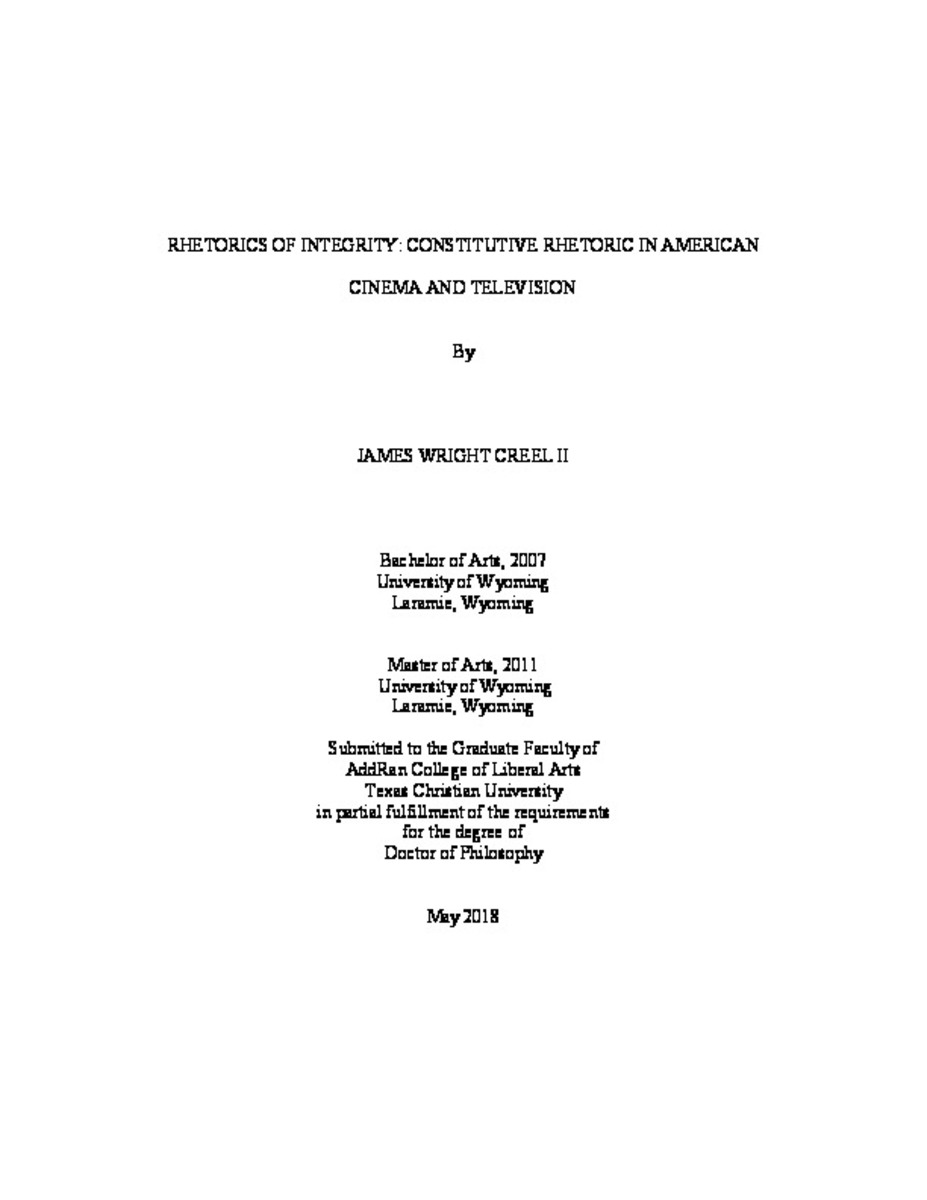Rhetorics of integrity: constitutive rhetoric in American cinema and televisionShow full item record
| Title | Rhetorics of integrity: constitutive rhetoric in American cinema and television |
|---|---|
| Author | Creel, James Wright, II |
| Date | 2018 |
| Genre | Dissertation |
| Degree | Doctor of Philosophy |
| Abstract | This dissertation addresses the ways in which Americans navigate between their gendered, raced, and national identities, and the role film and television play in that navigation. To do so, I draw from and build upon Maurice Charlands concept constitutive rhetoric, which theorizes the construction of national identity as a process of interpellation, where a particular facet of identity is hailed as always already extant. But whereas Charland deals exclusively with symbolic identity, I argue that the premises for constitutive rhetoric also extend into the material world because identity is also a material, embodied phenomenon. As a result, I assert that scholars of rhetoric and culture can better conceptualize human bodies as material constructs, and material constructs (national monuments, statues) as bodies. Because identity is material, the calls to identification in constitutive rhetoric are simultaneously calls to embodiment, and a call to shift bodies is understandably often met with resistance. To explain this resistance, I develop a theory called rhetorics of integrity, which are discursive and non-discursive appeals that privilege consistency and wholeness. Using this theory, I identify appeals to integrity in portrayals of raced, gendered, and national bodies in American cinema; in particular, I analyze how and why these bodies are destroyed and what interests are served by having certain bodies remain whole. |
| Link | https://repository.tcu.edu/handle/116099117/21833 |
| Department | English |
| Advisor | George, Ann L. |
Files in this item
This item appears in the following Collection(s)
- Doctoral Dissertations [1526]
© TCU Library 2015 | Contact Special Collections |
HTML Sitemap



